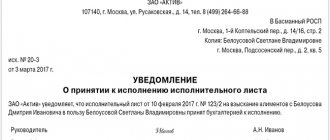My story is determined by life circumstances - I have an elderly, lonely relative left in my care, this is my aunt, my father’s sister. She was a widow, she had no children, my mother and I were her closest relatives. My aunt was entitled to a free social worker - such workers come twice a week, bring food (we left money for them weekly), take out the trash, check whether everything is fine with their ward’s health - they don’t examine, but look at the appearance, the answers. We had my aunt’s social worker’s mobile phone, we were in touch for many years, and when my aunt had a stroke, it was the social worker who called the doctor the fastest - it happened on the day she arrived.
Once a week I visited my aunt, alone or with my mother. We washed the apartment, refrigerator, bathroom and toilet, brought simple universal food (we cooked it at home and brought huge packages with us - mashed potatoes, steamed cutlets) so that my aunt would have less contact with the gas stove and heat it more in the microwave. We washed my aunt, I cut her nails and hair, we took things to the laundry and changed them into new clothes, I made the bed. This went on for the last ten years - my aunt became ill in health and did not go outside.
Accordingly, monthly expenses for an aunt were equivalent to monthly expenses for a full-fledged family member - food, household chemicals, clothing, utility bills, etc., this could be from 30,000 to 50,000 rubles per month. We kept my aunt’s pension, and I paid for her care all these years from my salary.
About a year before her departure, we began to notice changes in her psyche - memory lapses, she sometimes called us by names that were not ours, abruptly jumped from one topic to another: dementia was developing. We began to think about bringing my aunt to us - under constant care and control.
My aunt lived in an area almost entirely consisting of Khrushchev-era apartment buildings, where elderly residents lived, mostly old men and women. We constantly heard about cases of fraud, when people come to them to lure money for “magical” household or medical devices, we understood that the apartment market is fragile and one fine day a person will come to my aunt who will “discuss” the transfer with her rights to an apartment.
To protect her and her home legally, we chose the option of a lifetime annuity agreement. It involves transferring to you the right to property (here - real estate, a two-room apartment in a five-story building) after the death of the person to whom you provide rent for life.
The aunt agreed, we talked to her and explained how this decision would allow us to record what we were already doing, protect her and give her guarantees for the future.
We immediately involved a notary and a lawyer in our matter, calling them to our home. It is already difficult to say how much it cost at that time, but these were the prices in the market and the range of services included drawing up an agreement, visiting a relative, certifying signatures and support later, issuing all the necessary documents.
The contract spelled out all the points that I had already fulfilled for many years - the amount of 30,000 was indicated - this is the monthly minimum that should have been fulfilled for care (under the contract you collect checks), some contracts stipulate the conditions of burial and taking care of it after the person leaves. In fact, the amount spent on care was more, and this was in the order of things - because we were talking about a family member.
The issue with the subsequent funeral in our case was resolved, because for my aunt there was a place in the cemetery where her mother (my grandmother) was buried.
The aunt passed away shortly after the death of her brother and dad, and the timely conclusion of the agreement made it possible to avoid worries that could have been associated with receiving an inheritance.
I can say that despite the fact that my situation seems to be quite obvious and natural, there is something in it that is important for everyone in the field of life annuity to consider:
1. It's a responsibility
, first of all, for human health, for his mental and emotional state. Special books are not needed, but a healthy and stable psyche is definitely needed. You will be caring for an old man with a rigid psyche and possibly deteriorating health. You must be emotionally mature and have incredible emotional intelligence. You must be above the clouds of reason of the ward, not be offended by his whims and bad character. You must show tremendous empathy, love and patience and maintain them throughout your journey. These are the most important things.
2. You must have time to care for your ward.
This may be a daily concern or a whole day on the weekend - but completely from morning to evening, and this is many months and weeks over many years. This type of work does not have vacations or time off. And it's physically and emotionally difficult. It is difficult to wash the light but clumsy body of an old man or woman and to clean the apartment; you must not be squeamish, friendly and ready for the role of a nurse.
3. You should know that there are many more advantages to this care.
than just future material gain. You improve another person's quality of life, making them healthier and happier.
4. You must be a mature person
to decide to do this when the circumstances are like this. It is important to understand that by doing so you will protect your ward, and not go to the extreme of “what people around will say.” To do this, however, as I wrote earlier, you need to be an emotional adult.
What is a life annuity
Life annuity
- this is a type of transaction in which the apartment owner (rent recipient) undertakes to transfer his housing in exchange for regular payments.
If the homeowner requires additional services—for example, care, grocery shopping, or help with housework—then this type of annuity is called a lifelong dependent annuity
.
The term of such an agreement is until the end of the life of the apartment owner. And if the annuity agreement was concluded with several recipients - for example, spouses - then until the end of the life of the last recipient.
Property can be transferred free of charge
(that is, exclusively for rent payments) or
for a fee
- a one-time payment at the time of concluding the contract, which will be supplemented with rental payments in the future, notes the managing partner of the Moscow law office "Shcheglov and Partners", lawyer Yulia Lyalutskaya.
The amount of rental payments is established by the contract. If the apartment is transferred free of charge, then payments cannot be lower than the subsistence level, which is established in the region where the rent recipient lives. If the cost of living increases, payments are indexed.
According to Lyalutskaya, the transfer of ownership of real estate occurs immediately after the conclusion of a rent agreement. That is, the rent payer will legally become the owner of the apartment. But the property will be encumbered - it cannot be sold or rented out without the consent of the rent recipient, who will also retain the right to live in the apartment.
You need to keep in mind: after the conclusion of the contract, the rent payer - as the owner of the property - will need to pay utility bills and taxes, despite the fact that he will not actually live in the apartment.
Social Security Issues
Caring for elderly people for an apartment is not viewed unambiguously by society. On the one hand, this is a mercantile interest and it causes condemnation, but on the other hand, this option can provide a pensioner with a full-fledged old age and care in his own apartment.
The imperfection of the social program in Russia cannot provide decent and timely assistance to lonely elderly people. Boarding houses are overcrowded, and the meager pension does not allow them to use paid services. Caring for elderly people in an apartment is a good option to live out their last days in their own home, receiving care and attention.
In European countries, an elderly person has the opportunity to receive additional subsidies and benefits. The actions of the public and commercial sector are aimed at ensuring the unhindered living of a pensioner in his own apartment. An example is Switzerland, where people with functional impairments have the right to apply for housing adaptation benefits. Municipal authorities bear the cost of equipping the premises, regardless of the applicant’s pension.
Advantages of ensuring the normal existence of other countries:
- The number and infrastructure of boarding houses, both on a state basis and at the commercial level, have been improved.
- There are a large number of charitable organizations that provide equipped apartments and first aid for dementia and functional disorders of the aging body.
- Care for sick and dying older people has been moved to the home with full medical support.
- Decent budget funds are allocated for the development of social services.
In Russia, an elderly person with severe functional disorders faces social security problems. To ensure normal care, he is forced to resort to mortgaging property.
How to draw up a contract correctly
According to lawyer Susana Kirakosyan, a life annuity agreement is subject to mandatory notarization. And the transfer of ownership of the apartment - state registration. If the apartment is transferred free of charge, this will be a gift agreement, and if an additional payment is made for the apartment, then it will be a purchase and sale agreement.
Before concluding an agreement, the rent payer should prepare, advises assistant lawyer of the Union of Lawyers of the Moscow Arbat Bar Association, Alexander Ushakov.
- Meet the annuity recipient.
The lawyer recommends studying the composition of the recipient’s family and his potential heirs. To do this, you can get archival and expanded extracts from the house register (this can be done at the MFC, housing cooperative or HOA), see who and when was registered in the rent recipient’s apartment and where they were discharged. “This document will give an idea of the composition of the family, but only on the condition that they were registered in the apartment of the rent recipient,” notes Ushakov. In addition, the lawyer recommends looking at photo albums and talking with the potential annuitant and his neighbors.
- Check the psycho-emotional state of the future annuity recipient.
It is best if the recipient undergoes a medical and psychological examination at an accredited healthcare institution, PND and ND at the place of residence, says Alexander Ushakov. An additional guarantee is that the annuitant must have a valid driver's license.
- Provide the notary with a certificate when concluding a contract
from healthcare institutions about the lack of registration with the PND and ND. “It is advisable to register only in a notary’s office with an entry in the register of notarial actions,” the lawyer advises.
There are no standard annuity contracts; they are always drawn up individually. The contract must indicate the total cost of housing, the amount of the monthly payment and the timing of its payment. If a lifelong maintenance agreement with dependents is drawn up, then you need to list all the responsibilities of the annuity payer - and do this in as much detail as possible. If the rent recipient wants to retain the right to live in the apartment, then this condition must be explicitly stated in the contract, notes Susana Kirakosyan.
“When drawing up an annuity agreement, it is important to clearly formulate the responsibilities of the annuity payer, specifying what exactly he must perform to the annuity recipient: including the amount of one-time and monthly payments to the annuity recipient, the procedure and amount of indexation of the amounts of periodic payments. If there is a condition for the supply of food and medicine, it is necessary to indicate the volume and range, quality or name of specific goods, and indicate the frequency of services,” lists Alexander Ushakov.
Or you can just buy an apartment with a mortgage
View rates in banks
Tactics to reduce possible deceptions
There are traps here at every step, so it’s worth foreseeing all the secret pitfalls.
- For your peace of mind, it is best to enter into an agreement with people you have known for a long time , whose reliability is higher than in a person you are seeing for the first time.
- You should contact a professional lawyer who will monitor the consistency and correctness of your actions and help prevent bad consequences.
- Choose the contract that is suitable for you ; the most successful, as we found out, is the annuity contract.
What to watch out for
1. The transaction may be declared invalid.
“The most common case of fraud with an annuity agreement is its conclusion in favor of a citizen who died at the time of its conclusion. Most often, such situations are possible when the rent agreement is concluded through intermediaries,” says Yulia Lyalutskaya. In the future, such an agreement may be declared invalid, but returning the money transferred to the “intermediaries” is problematic.
Here are a few more reasons why a deal may be invalidated:
- the rent recipient did not have the right to dispose of the property;
- the identity of the annuity recipient prevents the conclusion of the contract: he is incompetent, does not realize that he is managing property, or is mistaken about the nature of the transaction;
- the form of the agreement does not meet the requirements of the law.
To reduce these risks, it is necessary to very carefully and thoroughly examine the real estate itself, the contract, and also check the identity of the rent recipient, the lawyer advises.
To do this, you need to obtain an extract from the Unified State Register (Rosreestr), and also check information about all court cases involving the owner using the electronic judicial database, adds Susana Kirakosyan.
2. The heirs can challenge the deal.
Real estate that is transferred under an annuity agreement is removed from the inheritance estate - that is, in any case, the heirs will not be able to receive it. But after the opening of the inheritance, the relatives of the annuity recipient may challenge the agreement.
“The most popular argument in such cases is that the grandfather (or grandmother) could not direct his actions and did not realize that he was managing real estate,” explains Yulia Lyalutskaya. Indeed, it is impossible to completely eliminate such a risk when concluding an annuity contract. Even if you collect the maximum amount of evidence and documents that confirm the real will of the parties and the absence of coercion and delusion, you still cannot prohibit the heirs from filing a claim. And a legal dispute means 6–8 months of litigation only in the court of first instance, the lawyer warns.
3. The annuitant may change his mind and try to terminate the contract.
“Such situations usually arise under pressure from heirs, relatives, or simply concerned neighbors who see a criminal component in everything,” says Yulia Lyalutskaya.
“The parties must act in good faith, but, alas, in practice, many district courts, especially in the center of large cities where real estate is expensive, quite often consider disputes between the recipient and the rent payer with demands for termination on far-fetched grounds. As a result, a conscientious rent payer is left with losses without the expected real estate,” confirms Alexander Ushakov.
If you draw up a contract correctly and fulfill your obligations properly, then terminating it without reason will be problematic. But you still have to prove your good faith to the court. “If the annuity agreement provides for regular cash payments, then evidence of the fulfillment of the annuity payer’s obligations will be receipts for receipt of cash or bank statements confirming regular money transfers,” notes Yulia Lyalutskaya.
Making a will
There are many such situations when a stranger caring for a grandmother is confident that the property will go to him in exchange for her apartment, because the old woman has drawn up a will with a notary.
No matter how it is! A will is the most uncertain type of transaction for a caregiver . And all because:
- the testator can rewrite the will several times without notifying the person to whom the apartment is bequeathed. And if the relationship between the caregiver and the old woman has deteriorated, then the grandmother can safely change her point of view and change her will;
- Often, after the death of an apartment owner, his relatives, whom the caring person has never even heard of, try to claim the rights to real estate. As a result, if he wants the apartment to go to him, there will be a long trial. And the court does not always side with the person to whom the apartment was bequeathed.
Making a will for a caregiver is convenient for the apartment owner. So, he receives sincere care and support, he disciplines the guardian.
But for a guardian, drawing up a will is not a suitable transaction option, because the old woman can change her mind at any time, change the will, or even sell the apartment. And then he will be left with nothing.
A person who wants to care for a lonely elderly person in an apartment must understand that if a pensioner in his old age is left completely alone, without relatives, friends and acquaintances, it means that he does not have such a simple character.
He can be conflicting and quarrelsome. Otherwise, such an old man would be surrounded by relatives, children, grandchildren, and friends.
Tips: how to protect yourself and your money
- Choose reliable intermediaries if you need them.
In order not to run into scammers, you should very carefully study the documents and real reviews of the intermediary agency - it is better to choose such agencies on the advice of people you know. “If you decide to enter into an agreement with a professional company, then give preference to a state-owned one. Payments will be smaller, but you will be reliably protected from fraud,” advises Susana Kirakosyan. It’s even safer to find an annuity recipient you know on your own. Such a person could be, for example, a lonely elderly neighbor or your relative.
- Contact a lawyer to assist with the transaction.
“When preparing documents for a transaction, in addition to the requirements of civil law, a lawyer also takes into account the legal positions of the courts, similar disputes and “cases” that determine the appearance of certain conditions in the document,” explains Yulia Lyalutskaya. A realtor, according to the expert, cannot replace professional legal expertise: his goal is to ensure a meeting between the seller and the buyer and bring them to a transaction.
- Execute the contract to the letter.
To do this, you need to describe all your obligations in the contract in as much detail as possible. If it says that the rent payment must be transferred through a bank, transfer through the bank so that there is confirmation from a third independent person about the payment made in favor of the rent recipient, says Alexander Ushakov.
- Collect evidence of all your actions.
Keep evidence of everything that you perform under the contract: bank statements about the transfer of funds, receipts from stores, payment confirmations, notes the lawyer.
- Be friends with the rent recipient's neighbors.
In the event of a dispute, their testimony in court as a witness: that you regularly visited, brought food and medicine, looked after and maintained the annuity recipient’s home - will be the right tool for protecting your integrity, advises Alexander Ushakov.
Working conditions in detail
The amount of payments is small, but in addition to them, each year of care for a pensioner is included in the work experience. In addition, for work there is an individual pension coefficient - an indicator that, along with length of service, will determine the size of your future insurance pension. For a year of work, an accrual of 1.8 points is due.
The number of pensioners who can be cared for is not limited by law. You can take care of as many elderly people as you can care for. For each of them, the state will charge compensation of 1,200 rubles, but the number of wards will not affect the length of service and the coefficient. Let's say you take three retirees under your wing. For 5 years of work you will receive up to 216,000 rubles (1,200 rubles x 3 people x 60 months), 5 years of experience and 9 pension points (1.8 × 5).
Experience during the period of leaving is accrued to everyone who worked somewhere before leaving or will work after that.
Legal aspects of providing apartment care
When old people have no relatives, guardians become relatives
The most important question in such a transaction is: how to protect your rights and guarantee the fulfillment of obligations after the death of an elderly person? The elderly themselves are also looking for a legal option that would guarantee the protection of their rights, so as not to end up homeless at the very end of their lives due to the actions of scammers.
Many are afraid of such transactions because of reports appearing in the press about “black realtors” forcing old people to give up apartments under the influence of threats, as well as about murders and abuse instead of lifelong care.
The problem does exist, but the law provides for several options for executing such a transaction, and in which the rights of both parties will be maximally protected. These are a gift agreement, a will, a dependency agreement, a purchase and sale with the right of residence and some other options, in which the apartment becomes the property of another person, but the previous owner retains part of the rights to it.
The most important thing: the contract should not be based only on word of honor. No matter how trusting the relationship between people may be, it is better to agree on such complex issues on paper with mandatory notarization. After the death of an elderly person, the recipient will have to deal with the heirs, and it is necessary to have a sufficient set of evidence so that the will of the previous owner is actually carried out.




